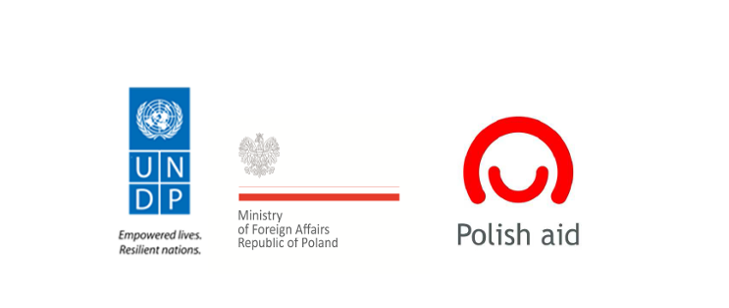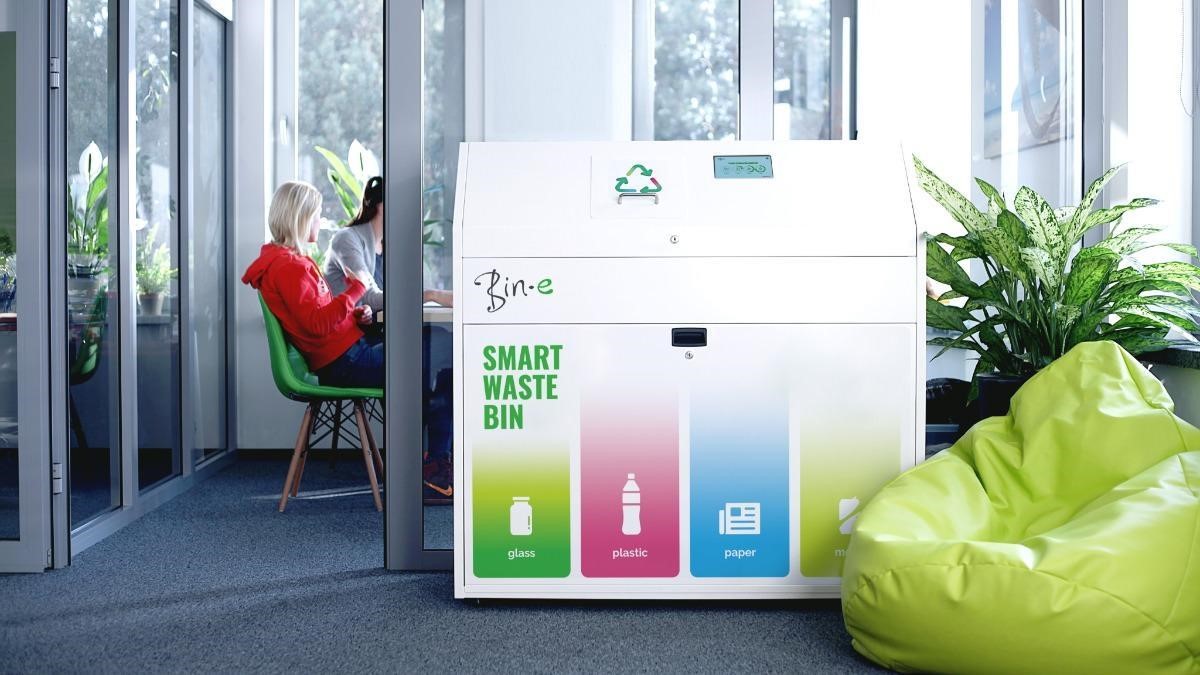«Smart» self-sorting waste bin Bin-e
In September 2020 NGO NECU was approached by the Polish private company Bin-e z.o.o., with a proposal to become partners on the project proposal to the Polish Challenge Fund to receive funding from the United Nations Development Program (UNDP).

The main goal of the Polish Challenge Fund (PCF) is to promote the transfer of Polish know-how, technology and innovative solutions in the field of green technologies and ICT to Polish aid partner countries. In turn, the UNDP BOOST Solutions initiative for COVID-19 for Ukraine and Belarus, implemented via the PCF in Poland, focuses on finding innovative solutions to the challenges of digitalization, economy and prosperity, and aims to address development issues, particularly, in the new environment, created by the distribution of COVID-19, with the implementation of selected projects in Ukraine and Belarus.

Bin-e develops “smart” waste bins based on artificial intelligence, designed for use in public spaces, that automatically sorts and compresses waste, controls its self-filling levels, processes and provides data via a special application for the most convenient and efficient waste management.

The utilisation issue is an extraordinary modern challenge to humanity, and especially to Ukraine. Waste and secondary materials sorting is part of this cyclical chain of matter-energy transformations. Sorting household waste at homes, at schools, enterprises or in other public places is an element of education and a marker of community awareness.
Moreover, most public places are now the most vulnerable in terms of the spread of the pandemic, and ensuring the safe disposal of waste is one of priority tasks. As part of the PCF-BOOST project, the company has developed a new version of their waste bin that solves the problems associated with COVID-19. New features include:
- Antibacterial technology of coating the device with silver ions;
- Internal UV lamp for waste disinfection;
- Automatic sorting of high-risk paramedical waste (masks, gloves, boot covers).
NECU was involved in the project’s joint presentation and testing of the new device at the territory of Ukraine, as well as localization of interface and application in Ukrainian language. Thus, with aid from Project Office of National Aviation University (NAU) in Kyiv, a new prototype was delivered and installed in NAU HUB student space, where it was exhibited and tested for a month (16th of March to 16th of April 2021).
Considering the “smart” nature of this technology, significant simplification of waste sorting, opportunities for organized data collection, and waste collection planning optimization, this technology proves to be interesting under umbrella of SPARCS project, potentially useful for establishing smart cities in Europe, including SPARCS Lighthouse and Fellow cities, as well as the strong incentive for promoting waste sorting practices.

